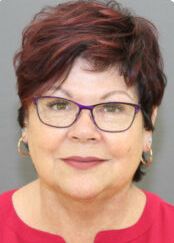Older Americans are fêted each May, but spring 2020 has seen many of us separated from our elders due to the coronavirus pandemic. Changes can occur or begin to occur at any time, but when elders have less socialization and interaction there can be sudden or accelerated change. It may start with not feeling like dressing since nobody will be around, and that can become holding off on bathing or wearing the same clothes too long. A senior parent with a normally active social life may not even reach out to call friends if quarantined alone.
As this column is written, I look forward to a time when it is safe to have fewer social restrictions. Until that time, you can still learn stay informed about your parents’ well-being. Even those among us who see parents somewhat regularly may not have noticed changes to their abilities, ambulation and self-care unless we vary the circumstances of our visits or check in with professional caregivers and medical providers, often by accompanying them to appointments or sitting in on telephone calls with providers. Alexander Valley Healthcare serves a significant older adult patient population and has expanded our tele-medicine outreach this Spring. AVH is also home base for the 24-hour medical provider who oversees patients at Cloverdale Healthcare Center skilled nursing facility.
A few tips on how to check in with your elders may be useful:
• It is ideal if you establish an ongoing conversation and your elders feel comfortable keeping you informed or hearing your concerns. Allow them to set some parameters and make agreements about how to accommodate matters that concern you both.
• Especially if you live at some distance, visuals help. Skype or Facetime, if practical for your senior, will be useful.
• If your senior family member doesn’t have help at home, try to determine if they are keeping the home clean and fairly organized, as well as safe.
• A look inside the refrigerator is often very helpful in assessing needs and abilities, as well as whether there is sufficient, nutritious food on hand.
• If your older family member has fallen recently, that is of concern, especially if it has happened more than once. It only takes one bad fall to create ongoing health issues.
• If not now, at some point you can offer to take them to lunch or to the store to see how they operate in a different setting. Do they dress appropriately for the outing? If they require walking support, are they prepared? How and what do they eat?
• Offer to transport your senior to a medical appointment. If they are willing, participate in their visit with the medical provider.
• Visits with your parents’ medical provider are also a good time to inquire about the status of legal healthcare documents such as Do Not Resuscitate orders.
• For couples, sometimes the decline in one is actually indicative of decline in the caregiver’s abilities, a danger to both that would signal need for a prompt call to the healthcare provider.
Sonoma County is fortunate to have a variety of services and resources for the elderly. Local senior centers can provide access and information. In normal times, the centers are a wonderful way to supplement social and nutritional needs. Cloverdale Multipurpose Senior Center is one resource that can prevent seniors who are sheltering or disabled from being totally cut off. Call 894-4826 to sign up for the monthly newsletter and to learn about services and activities.
Council on Aging provides ongoing services such as money management, legal counsel and advocacy programs for older and disabled adults. COA may also provide names of geriatric care professionals. Review service offerings at www.councilonaging.com.
Paula Wrenn is the Board Chair for Alexander Valley Healthcare located in Cloverdale, the only primary care provider between Healdsburg and Ukiah.








